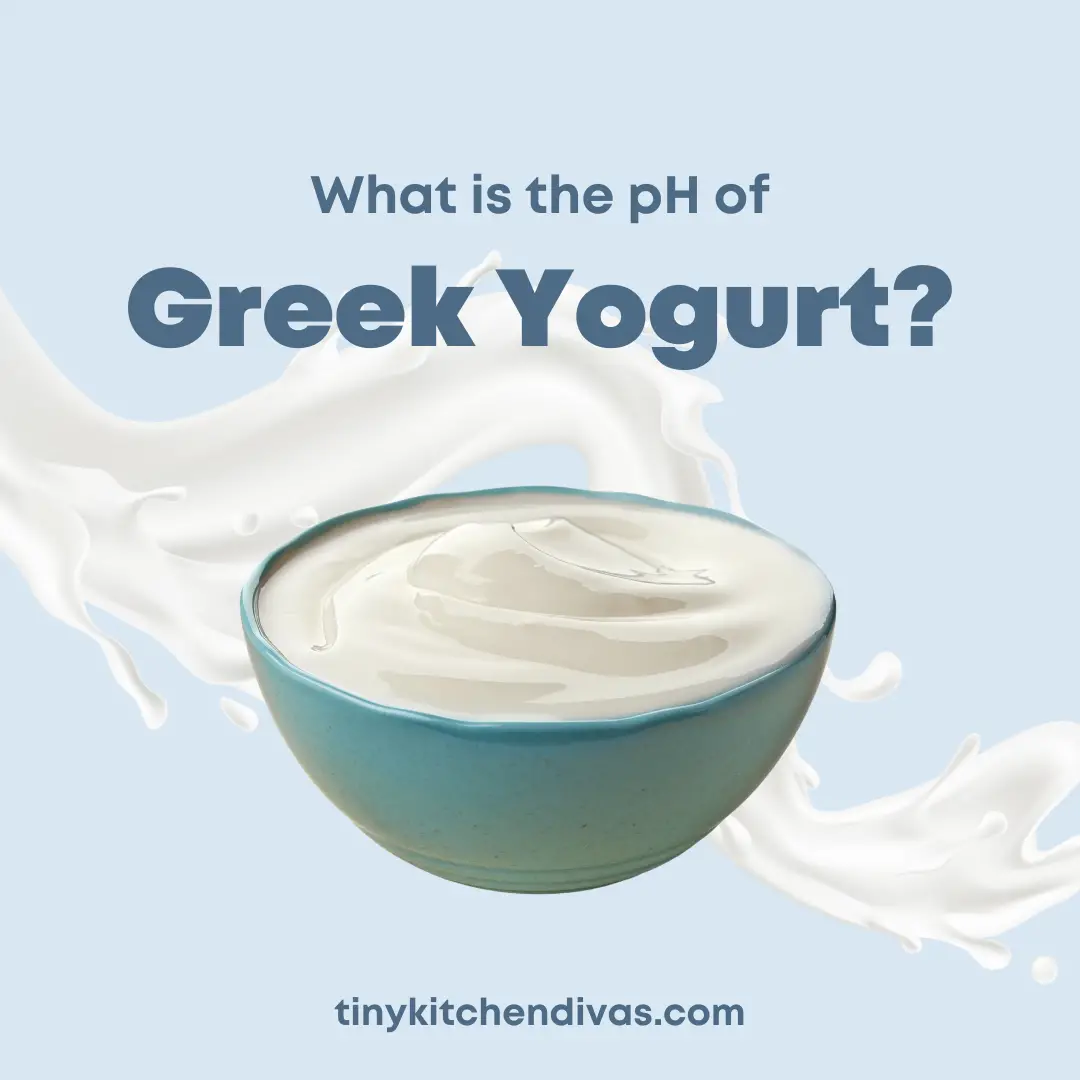Greek yogurt is a nutritionally dense fermented dairy product. It is prepared by fermenting milk with live beneficial bacteria cultures. There is a considerable nutritional difference between Greek yogurt and regular yogurt. Greek yogurt contains less sugar than your regular yogurt. The whey is removed in Greek yogurt, resulting in a richer, creamier yogurt with a sour flavor.
What is the pH level of Greek Yogurt?
pH is an important control point in the synthesis of Greek yogurt. The quality and consistency of Greek yogurt are determined by its pH. Any difference in pH from the standard may shorten the shelf life and modify the flavor of Greek yogurt.
Greek yogurt has a pH range of 4.84 to 4.94, making it less acidic. A pH of less than 4.6 is considered acidic, a pH of 7 is regarded as neutral, and a pH of greater than 7 is considered alkaline. Although Greek yogurt’s pH makes it acidic, it is alkaline-forming, which means it helps your body maintain homeostasis by neutralizing its pH level. It keeps your body alkaline and prevents acid reflux from worsening.
The casein protein in milk coagulates and precipitates due to the acidic combination, thickening the milk into a yogurt-like texture. Yogurt typically has a pH of 4-4.6, with an average of 4.4.
The formation of four primary acids, lactic acid, acetaldehyde, acetic acid, and diacetyl acid, gives yogurt its distinct taste and flavor. Lactic acid is a beneficial component of yogurt at this pH. It thickens the yogurt and gives it its distinctive tartness, as well as restricting microbial development due to its low pH.
Is Fage, Vanilla, Plain Nonfat, Lactose-Free, Natural Yogurt Acidic?
There are a number of varieties of Greek yogurt. On a pH scale, Greek yogurt is acidic. Before we dig deeper, let us see what the pH of all Greek yogurt varieties is.
The majority of Greek yogurt is not overly acidic. On a pH scale, Fage Greek yogurt is highly acidic, with a pH range of 4 to 4.6.
Natural yogurt and plain non-fat Greek yogurt are different. Greek yogurt is gently acidic and less sour compared to natural yogurt.
Lactose-free Greek yogurt tastes exactly like regular yogurt. There is no substantial difference in pH, and it is nearly the same between 4.8 and 4.9.
Vanilla Greek yogurt has a lower acidity level. Vanilla yogurt has a pH range of 6.37 to 7.10, which makes it alkaline yogurt but with high sugar content.
Is Greek Yogurt Healthy?
Despite being nutrient-dense, Greek yogurt is creamy and tasty as well. A single serving of Greek yogurt, for example, might contain anywhere from 12 to 17 grams of protein, depending on the brand. It is good for bone health, the immune system, and other bodily functions.
Protein in it makes you feel full after you eat, which helps avoid overeating. Due to this, one is less likely to gain weight, and the stomach won’t produce as much acid, which could cause it to reflux up the esophagus.
Greek yogurt is high in probiotics and can help protect your digestive system. Furthermore, you aren’t required to consume a lot of it to reach your probiotic requirements.
It is also a good source of calcium. This mineral contributes to a better immune system while keeping the bones healthy. Yogurts and dairy products contain calcium, and Greek yogurt is high in this nutrient. As a result, including this delectable treat in your diet can help you maintain a healthy body.
Greek yogurt is very simple to incorporate into your diet as you may cook with it or have it as a dessert on its own. Many people use B12 supplements these days, but it’s ideal to receive this vitamin B12 from a natural source, and Greek yogurt is a great way to do so.
Moreover, Greek yogurt is easier on the stomach than regular yogurts. This is good news for persons who suffer from gastrointestinal problems like acid reflux or GERD. As Greek yogurt contains more protein and less sugar, it is preferred over other yogurts.
Sugar content increases stomach acid production. Thus, choosing low-sugar choices is preferable for stomach problems.
Is Greek Yogurt Good for Acid Reflux?
Greek yogurt is less acidic on the pH scale, but it’s regarded as safe for acid reflux sufferers because it contains less sugar. Additionally, Greek yogurt includes alkalizing minerals. Its alkalizing properties after digestion will help absorb excess stomach acid.
Greek yogurt’s probiotics may assist in reducing acid reflux symptoms. As per a study titled “Potential health benefits of combining yogurt and fruits based on their probiotic and prebiotic properties” published in the National Library of Medicine, an international review journal showed yogurt contains beneficial bacteria that enhance nutrient absorption and digestion. Combining yogurt with fruits can reduce heartburn and improve digestion.
It also contains anti-inflammatory characteristics that aid in relieving acidic pains such as heartburn and chest pain. It is a great choice if you’re looking for a tasty and healthy snack. It’s rich in protein and probiotics, which are good for your health.
Why Is Greek Yogurt Good For You?
Greek yogurt offers numerous advantages over normal yogurt. As previously stated, Greek yogurt has less lactose than conventional yogurt (some types are lactose-free). This allows lactose-intolerant people to tolerate it sufficiently.
It has significantly lower calories than other types of yogurt, making it an excellent choice for anyone controlling their weight or calorie consumption. It is also a good source of probiotics.
Conclusion
Greek yogurt is a healthy alternative for people who suffer from acid reflux and want to add a healthy snack to their diet but are concerned about the high acidity of yogurt. It is an acid-free yogurt that is ideal for those with stomach problems if consumed in moderation.
Moreover, it is also a wonderful source of probiotics or “good” bacteria that maintain our digestive systems and are good for overall health.


